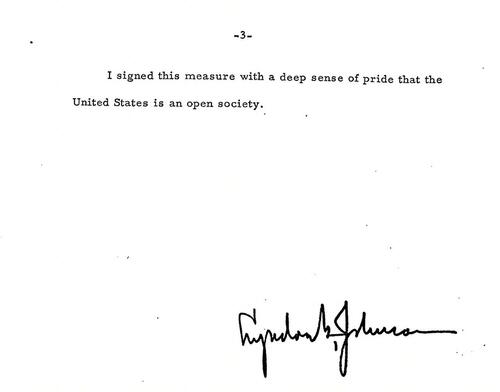We’re now told we must accept a new system of total non-privacy, required by government and their corporate partners, to surveil and subdue a troublesome public.
It’s the latest tool to unlocked another level of centralised public-private control of the data and information – all under the altruistic and ethical-sounding banner of ‘transparency’…

Matt Taibbi from Racket News reports…
About to hit the road for vacation, I wanted to highlight something that Walter Kirn brought up in the most recent America This Week, and popped up repeatedly as a never-published theme of the Twitter Files: the shameful, dystopian corruption of the noble word transparency.
“Transparency” was one of America’s great postwar reforms. In 1955, a Democratic congressman named John Moss from California — who served in the Navy in World War II, was nominated for office by both Democrats and Republicans, and was never defeated in any election for public office — introduced legislation that would become one of the great triumphs of late-stage American democracy.

The Freedom of Information Act took a tortuous path to becoming law, opposed from the start by nearly every major government agency and for years struggling to gain co-sponsors despite broad public support.
In a supreme irony, one of Moss’s first Republican allies was a young Illinois congressman named Donald Rumsfeld. After a series of final tweaks it eventually passed the House 307-0 in 1966, when it landed on the desk of Lyndon Johnson, who didn’t like the bill, either. Johnson signed it, but decided not to hold a public ceremony, electing instead to issue a public statement crafted by none other than Bill Moyers, which concluded, “I signed this measure with a deep sense of pride that the United States is an open society.”
The Freedom of Information Act gave reporters and citizens alike extraordinary power to investigate once-impenetrable executive agencies that conduct the business of government. FOIA requests gave windows into the affairs of the Hoover-led FBI, the Iran-Contra scandal, and the “Afghan logs” story made public after a bitter fight put up by the National Security Archive and the Washington Post. The irony alert here was this last FOIA lawsuit ultimately revealed behaviors unflattering to none other than Donald Rumsfeld.
The law governing the exercise of FOIA requests lists the following as one of the central duties of the Chief FOIA Officers Council:
Identify, develop, and coordinate initiatives to increase transparency and compliance with this section.
Transparency for decades was understood to mean a pro-democratic concept giving ordinary citizens the power to see how their government operates, how taxes are spent, and whether or not public officials are complying with laws. It was not dystopian gibberish when the word became synonymous with the fight against abuse of power through organizations like Transparency International’s “Corruption Perceptions Index.”
By 2023, the transformation of the term “transparency” has advanced to a stage where the word is now commonly understood by politicians to mean the mathematical opposite of what someone like John Moss would have thought. When elite politicians and media figures speak of “transparency” now, they mean giving government power to obtain “transparency” into the activities of private citizens.
I first noticed this quirk going through a batch of Twitter emails from late 2017 through early 2018, when company lawyers began to speak about communicating to the Senate Intelligence Committee plans to increase “transparency efforts around content moderation.” Internal debates also about proposed laws like Europe’s Digital Services Act wondered if companies like Twitter might better serve governments attempting to root out foreign “disinformation” by providing increased “transparency” to intelligence services.
Later, in 2021, the Aspen Institute issued a final report report on “Information Disorder” that contained an entire section on “Recommendations to Increase Transparency.”
This is as perfect example of deceptive use of language as you will ever find, and also involves the bastardization of the word, “journalism,” which in the context of these “anti-disinformation” efforts means examination of private data by “qualified academic researchers.” The relevant section reads in part:
Congress… should also require platforms to disclose certain categories of private data to qualified academic researchers, so long as that research respects user privacy, does not endanger platform integrity, and remains in the public interest…
Congress should require the platforms to disclose selected private data to qualified researchers working in the public interest, including any government agency or regulatory or investigative body… The invocation of terms of service to deny access to public interest researchers is detrimental to vital research and reporting… While the protection of user privacy is important, platforms should not be permitted to use privacy as a pretext for restricting and stopping research…
The above video of World Economic Forum head Klaus Schwab speaking on the topic, which circulated a great deal last week, represents the extreme villainous end of the reversal.
Transparency in Schwab’s conception has been turned on its head, to mean an unavoidable system of total non-privacy the world must learn to accept. This is not exactly a new thought of his. As far back as 2014, he responded to Edward Snowden’s disclosures about National Security Agency surveillance by saying how important it was to “protect ourselves” against “technological possibilities,” but added:
Everything is transparent, whether we like it or not. This is unstoppable. If we behave acceptably, and have nothing to hide, it won’t be a problem.
Saying now that we must accept “total transparency,” that “you have to get used to it, you have to behave accordingly,” is a twist on those old statements. Adding that this new transparency “becomes, how should I put it, integrated into your personality, but if you have nothing to hide, you shouldn’t be afraid,” achieves a fully dystopian reversal. Transparency is what authorities and possessors of the new Promethean thunderbolt want to have into your every action, transaction, and thought. It’s a terrifying idea, and as Walter noted, something Hitler or Stalin would have been reluctant to say out loud, though of course this exact idea was foundational to both totalitarian societies.
Telling us not to be afraid of this, to accept it, is a line even studied actors needed a certain panache to pull off in movies like Invasion of the Body Snatchers. “There’s nothing to be afraid of… once you understand you’ll be grateful… Don’t fight it, Miles, it’s not use. Sooner or later, you’ll have to go to sleep.”
These, exactly, are the sentiments of the new priests of “transparency”:
One last note. The extraordinary pro-democratic ideal of FOIA was underscored by the fact that the tool was available to every citizen. Not just New York Times journalists, but every private digger, potential whistleblower, even crackpots were granted the power of “transparency.”
The chief way you know the new version of transparency is a fraud is that it’s limited to “qualified” researchers. We’re even seeing lately news stories sourced to some of these same “researchers” complaining about having to comply with FOIA requests (a few of which are being made by Racket and partner publications). Ideologically, these self-appointed intellectual vanguards do not believe information is for everyone, nor do they believe they should have to answer to the people funding their “research,” while simultaneously believing that private companies and individuals should get used to the principle of endless inquiry.
When the meanings of noble words are turned inside out, we have to pay attention, and this example is about as infamous as this sort of thing gets. Don’t let anyone tell you transparency means surrendering your privacy to the state. It’s supposed to be the other way around.
READ MORE DEEP STATE NEWS AT: 21st CENTURY WIRE DEEP STATE FILES















